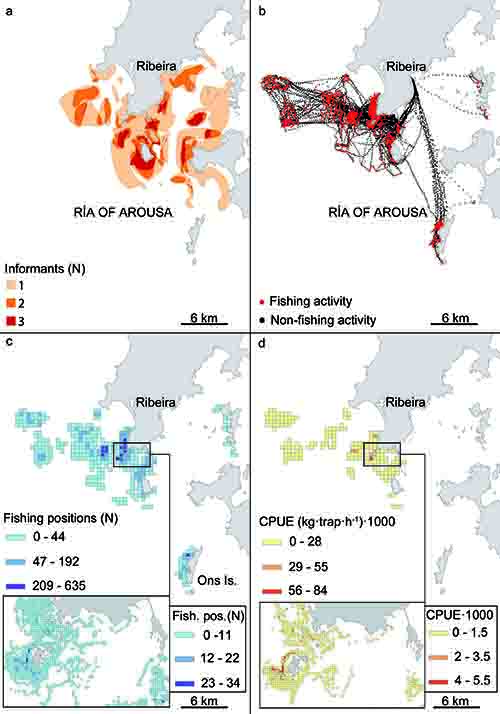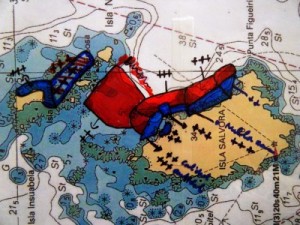Se acaba de publicar en la revista Fisheries Management and Ecology nuestro artículo sobre el uso del conocimiento de los pescadores y de herramientas de gestión baratas, aplicado a la pesquería recreativa de calamares y sepias en la Ría de Vigo Este artículo forma parte de los resultados del Proyecto RECREGES. El título original:
Combining fishers’ knowledge and cost-effective monitoring tools in the management of marine recreational fisheries: A case study of the squid and cuttlefish fishery of the Ría of Vigo (NW Spain).
Abstract
A new methodology based in the use of fishers’ knowledge and cost-effective tools to obtain information about marine recreational fisheries (MRF) is presented. The squid and cuttlefish fishery of the Ría of Vigo (NW Spain) was selected because it is managed in a data-poor environment. In-depth interviews (57) were conducted with fishers, collecting ecological and socio-economic information. A cartography of fishing grounds based on their knowledge was obtained, while the intensity of effort and catches was mapped by the monitoring of two vessels with low-cost GPS data loggers. The 102 shore anglers and 248 recreational boats catch 8 t/year of European squid Loligo vulgaris and 11 t/year of common cuttlefish Sepia officinalis (11% of total catches on these species in the area). Shore anglers fish from 11 ports, while boat fishers use 14 fishing grounds (covering 30 km2). Most of the catches (86%) are landed by boats, and their CPUE is higher in the outer part of the Ría of Vigo. The use of fishers’ knowledge and cost-effective monitoring is encouraged to obtain information for the management of MRF. Given the economic contribution of MRF (260,000 €/year in direct expenses), this activity should be considered in the regulations.


